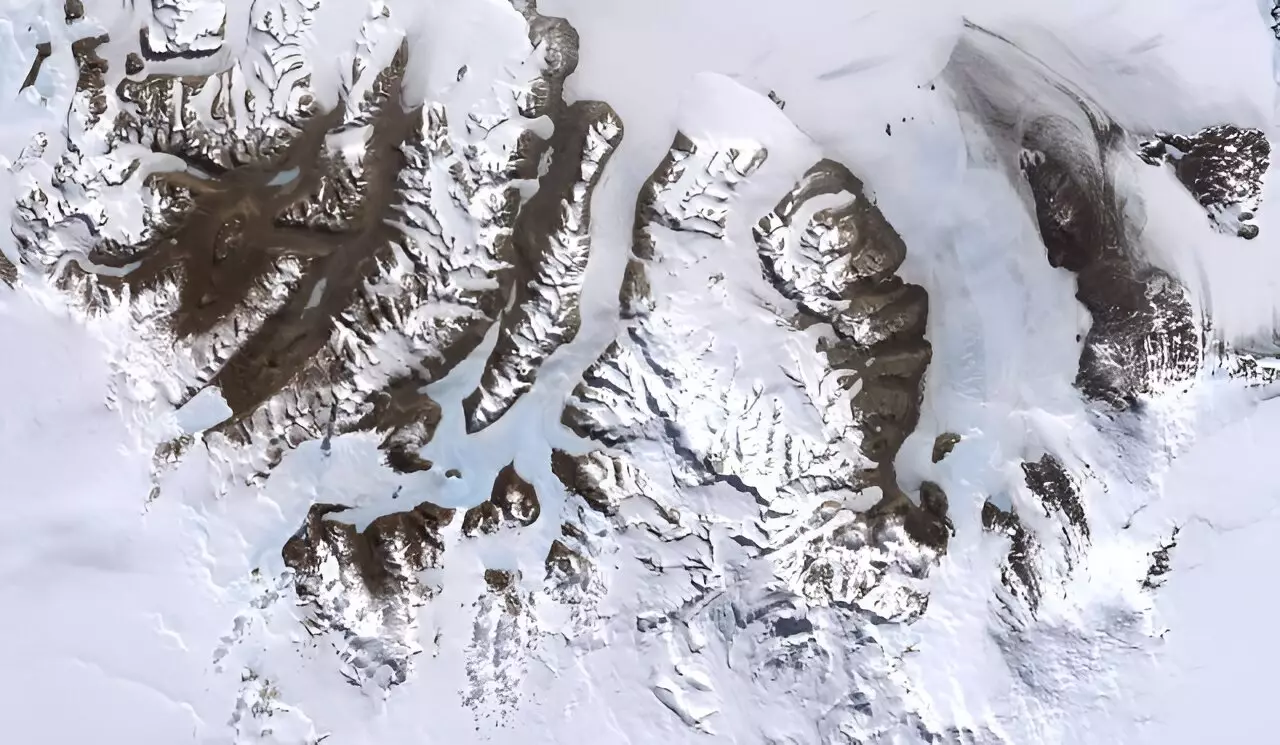The McMurdo Dry Valleys of Antarctica have long been known as one of the driest places on Earth, with minimal humidity and a lack of rainfall. However, a sudden and extreme weather event in March 2022 shocked researchers. The region experienced an unexpected temperature spike of over 70°F above its average, leading to a significant impact on the local ecosystem. Professor J.E. “Jeb” Barrett from Virginia Tech and his colleagues delved into the effects of this “weather whiplash” in a recent study published in the American Geophysical Union journal Earth’s Future.
The extreme heatwave in the McMurdo Dry Valleys on March 18, 2022, caused by a subtropical air current, had dire consequences for the invertebrate organisms that inhabit the region. These organisms rely on surviving winter in a frozen and inactive state, but the sudden thawing of the frozen ground due to the high temperatures led to record-high death rates. The mortality rate of these tiny creatures exceeded 50% in areas that were affected by the rapid thaw, highlighting the vulnerability of the ecosystem to unexpected climate shifts.
Barrett emphasized the significance of studying such extreme weather events in Antarctica to better understand how ecosystems and organisms will respond to future climate changes. The McMurdo Dry Valleys provide a unique research opportunity due to their extreme climate conditions and long-term meteorological records. By analyzing the impact of the March 2022 event on soil organisms like rotifers, tardigrades, and nematodes, researchers can gain insights into the resilience of these microscopic creatures in the face of environmental challenges.
In order to assess the extent of the ground thawing caused by the unprecedented temperature increase, Barrett and his team utilized multispectral satellite images. By comparing images before and after the warm weather anomaly, they were able to identify areas where the frozen ground had melted. The rapid thawing observed in the images confirmed that the valleys had experienced a massive inundation, disrupting the delicate balance of the ecosystem. This method of analysis provided valuable data on the immediate consequences of the weather event.
The findings from the study underscore the vulnerability of Antarctic ecosystems to sudden and extreme weather events, which are expected to become more frequent due to climate change. Barrett warned that such anomalies could have far-reaching consequences for both wildlife and human communities. By drawing parallels to weather fluctuations in other regions, he emphasized the importance of preparedness and adaptation in the face of a rapidly changing climate. The lessons learned from the McMurdo Dry Valleys can serve as a stark reminder of the fragility of our planet’s ecosystems in the wake of unprecedented weather events.



Leave a Reply